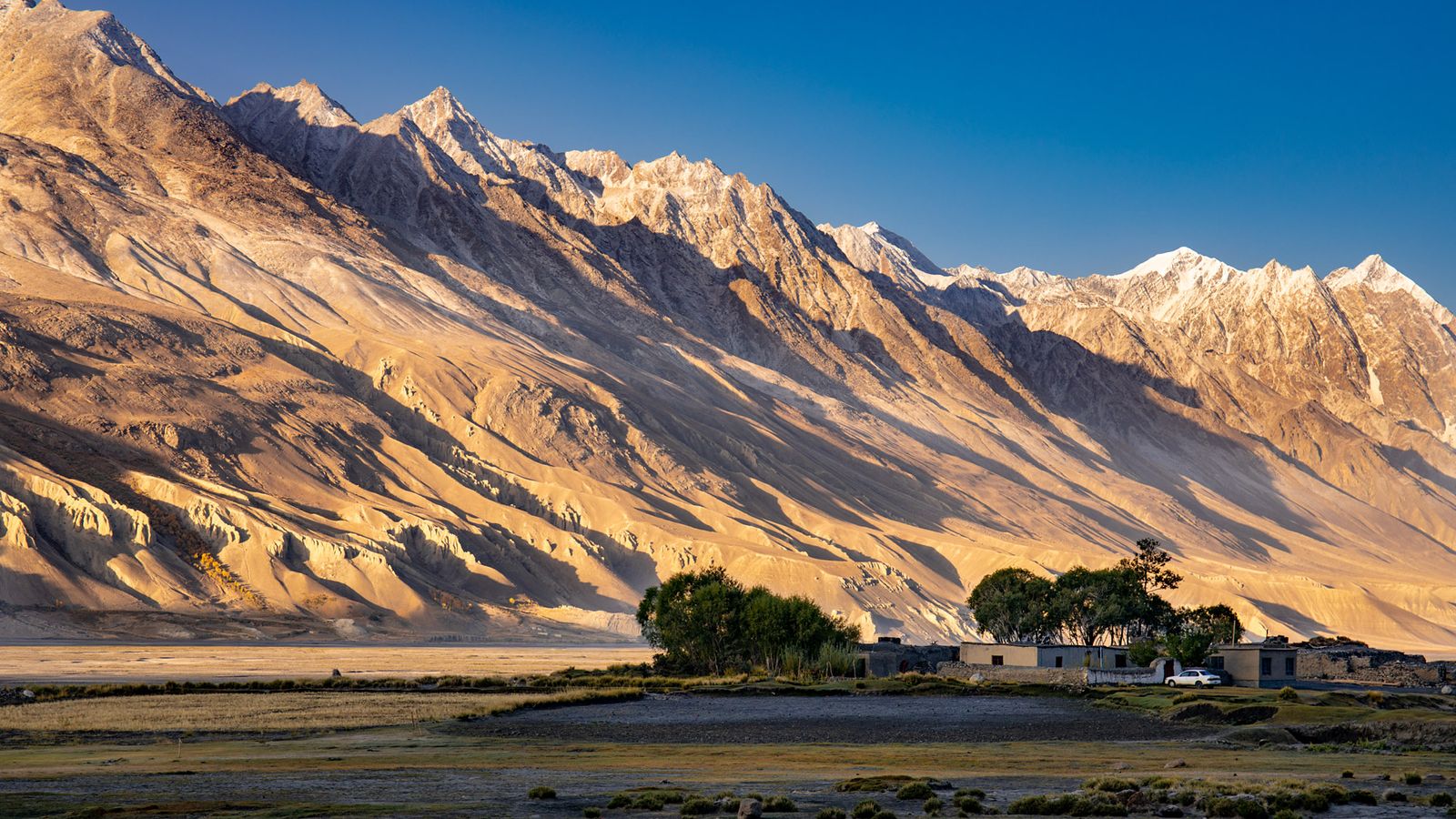With centuries of history, ancient archaeological sites, Islamic art and untouched landscapes, Afghanistan is attracting tourists – despite the Taliban regime and the UK government’s “do not travel” warnings.
In the 1960s and 1970s, the country formed part of the overland “hippy trail” route across Asia and welcomed hundreds of thousands of Western tourists. But as its complicated modern history unfolded, the steady stream of travellers stopped.
The UK Foreign Office currently advises against all travel to Afghanistan, highlighting its “volatile” security situation and an “ongoing and high threat of terrorist attacks”. But some adventurous tourists aren’t letting this stop them.
Joan Torres, founder of blog and adventure travel company Against The Compass, told Sky News that he has seen a “big increase in demand” for tours of Afghanistan. In 2023, he ran three trips to the country and for 2024, this number has doubled.
“Syria and Iraq used to be our big sellers but given the situation in the Middle East, Afghanistan might become our most sold-out destination soon,” he said.
Untamed Borders, which specialises in trips to “some of the world’s most interesting and inaccessible places”, has also seen a rise in interest. It has been helping travellers visit Afghanistan since 2008.
The company’s tours paused in August 2021 as the Taliban seized power and since resuming in September 2022, founder James Wilcox told Sky News “quite a number of tourists” have made bookings.
Afghan Youth Orchestra who fled Taliban to tour UK after Home Office U-turn on visa refusal
‘We will fight until we take back our rights’: The struggle for women’s equality in Afghanistan
Two shot dead by family of stabbing victims in public execution ordered by Taliban
While Afghanistan’s recent history is one of war and turmoil, Mr Wilcox said people who book with his company aren’t visiting because it’s a “dangerous and edgy” destination.
“They want to experience somewhere that’s culturally different, with different food and architecture,” he said. “One of the things that appeals when you to go to Afghanistan, is you don’t see life through the prism of tourism. There’s something much more authentic about it.”
Read more:
Eyewitness account – the Afghanistan earthquake last October
Life as a woman under Taliban rule
Since the Taliban has been in control, the situation for Western tourists is that “generally we can visit places we couldn’t visit before and the overall security situation has generally improved”, Mr Wilcox added.
His comment comes after a local official in Ghazni province – around 148km south of the capital Kabul – claimed “in a remarkable development” the region has “become a favoured destination for international tourists”.
Since the beginning of the year, 293 visitors from various countries have explored the province’s “natural attractions and ancient sites”, added Mullah Hamidullah Nisar, the head of information and culture in Ghazni.
Attractions in the province include a fort complete with 1,000-year-old towers.
Be the first to get Breaking News
Install the Sky News app for free
While the Taliban regime has a well-documented history of oppressing women – and previously banned them from a national park saying “sightseeing is not a must for women” – Western female tourists are allowed to visit, and Untamed Borders runs mixed-gender tours.
“One thing that women [travellers] can often do is spend time with women in homes,” Mr Wilcox said. “But there are other things that women are not allowed to do and certain places they’re not allowed to visit.
“On a good day as a female traveller, you get to see all the things the guys can see and on a bad day, you get ignored by everyone.”
Please use Chrome browser for a more accessible video player
Getting into Afghanistan, and obtaining permission to do so, has never been straightforward. Under Taliban rule, just a handful of embassies around the world have been able to issue visas and at all but one, you can only apply in person.
Tourists also need specialist insurance as regular providers do not cover travel to countries on the Foreign Office’s red list. They can then fly to Kabul via another hub in Asia, such as Dubai, or cross a border on foot.
For those who do jump through the necessary hoops and are willing to take the risk, unique sights, history and cultural experiences await.
“We take people to Bamiyan, which 1,500 years ago was the route between India and China,” Mr Wilcox said. “It was very cosmopolitan with very different ideas and religions. It was at the heart of Asian trade.”
Tourists can also visit the famous minaret of Jam, the cities of Herat, Kabul and Mazar-e-Sharif, and the site where two gigantic sixth-century Buddhas stood until the Taliban destroyed them in 2001.






